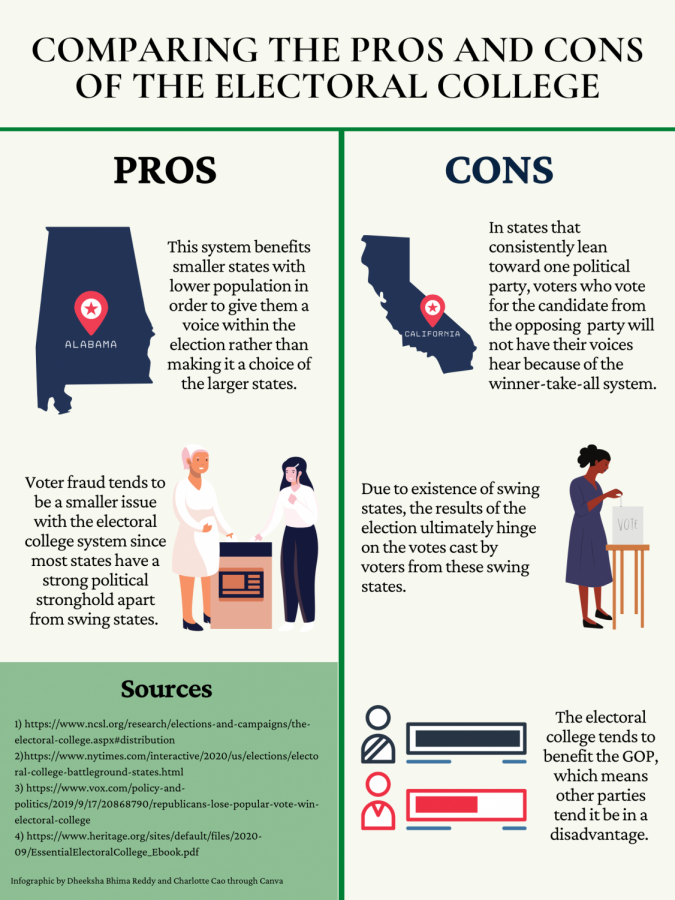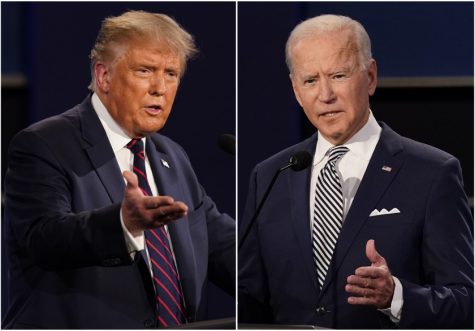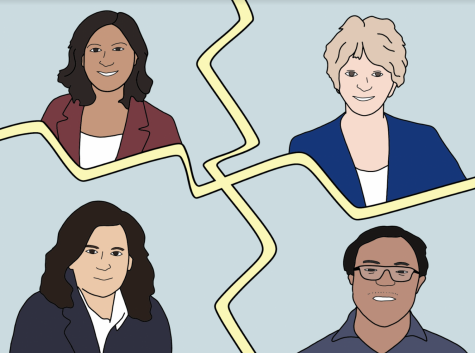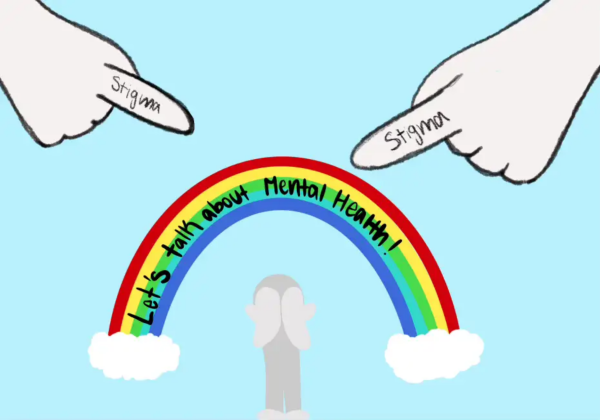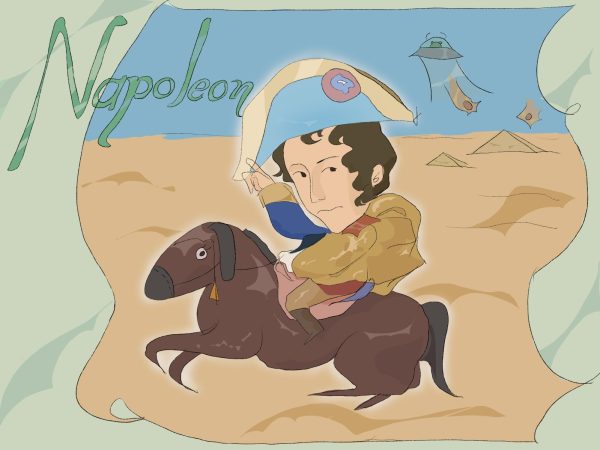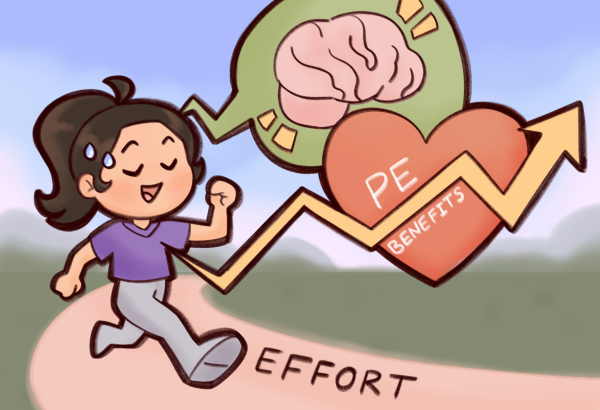The Electoral College is Ruining America’s Democracy
Charlotte Cao and Dheeksha Bhima Reddy
Although there are certainly positive attributes to the electoral college, the cons ultimately outweigh the pros, which explains why 58% of American adults would prefer if the system were abolished, according to the Pew Research Center.
Every four years in November, there is one number that plagues American’s minds: 270. It is more commonly known as the number of electoral college votes, out of a total of 538, that a candidate must earn to be elected as president.
But no matter how many times America is heralded as a total democracy, the truth is that the electoral college is a system that places the result of the presidential election in the hands of the states and their accompanying electoral votes, not the people.
In order to facilitate a more representative system of voting, the United States must abolish the electoral college system in favor of the popular vote.
In the electoral college system, when citizens vote for a candidate, what they are actually doing is voting for each party’s nominated slate of electors who will, in turn, cast their ballots for a presidential candidate, as stated by the National Conference of State Legislature. The number of electors that each state has is proportional to the state’s population.
“Our electors are selected by the state parties, and they are not necessarily more knowledgeable than you or I,” social studies department chair Jon Resendez said. “The electoral college was supposed to stop the people from electing a tyrant. It’s never done that. Only about 90 times in American history has an elector voted differently than their state or their area, and because it’ll never do that, I think it’s more of a hindrance for democracy than anything else.”
What makes the electoral college most detrimental to democracy is the fact that the candidate with the majority of votes within a state is awarded all of the state’s electoral votes, according to the NCSL.
“In the majority of states, the winner-take-all system of electoral votes doesn’t consider votes of the losing candidate,” 2020 voter and alumna Dheitshaa Bala said. “It also makes swing states the predominantly determining factor of a winner without even considering the margin of victory.”
Because some states like California are strong Democratic strongholds and others like Mississippi lean heavily Republican, the election is completely dependent on the few battleground states, such as Florida and Michigan; this means that votes from these states are inherently worth more, according to the New York Times.
As a result, candidates focus their time and money on gaining support from the constituents of these swing states, ignoring the needs of voters from states who have historically voted one way, according to the BBC. The implementation of a popular voting system would allow for each vote to have the same weight and that each voter’s wishes will be equally considered.
People knowing that their voice is directly heard rather than going through a whole system where their vote eventually is invalid. The popular vote is just plain and simple.
— Jon Resendez
In the elections of the 20th and 21st centuries, the electoral college shows a strong bias towards the Republican party, according to Columbia University.
Since each state is given electoral votes based on their population as well as two extra, this system benefits states with a lower population as the population density is lower in these areas, meaning that each person’s vote is worth more. These states, composed mostly of white farmers and blue-collar workers, tend to lean toward conservative beliefs, therefore benefiting their party, according to Vox.
“If we changed the electoral system, I think [the popular vote] based elections would excite people,” Resendez said. “People knowing that their voice is directly heard rather than going through a whole system where their vote eventually is invalid. The popular vote is just plain and simple.”
Given that abolishing the electoral college would require a two-thirds majority vote in the House of Representatives and the Senate, as well as approval from three-fourths of the states, citizens who are interested in instating the popular vote must contact their representatives and urge them to appeal to their demands. To contact Dianne Feinstein and Kamala Harris, California’s current senators, go to these links respectively: www.feinstein.senate.gov/public/index.cfm/e-mail-me and www.harris.senate.gov/contact.
Your donation will support the student journalists of Portola High School. Your contribution will allow us to purchase equipment and cover our annual website hosting costs.

Charlotte Cao is the Features Editor for her third and, unfortunately, final year on the Pilot. Whether it be through the co-writing of stories or during...

Dheeksha Bhima Reddy is the co-Editor-in-Chief for her third and final year on the Portola Pilot. Through her newfound obsession of drinking coffee (cold...



